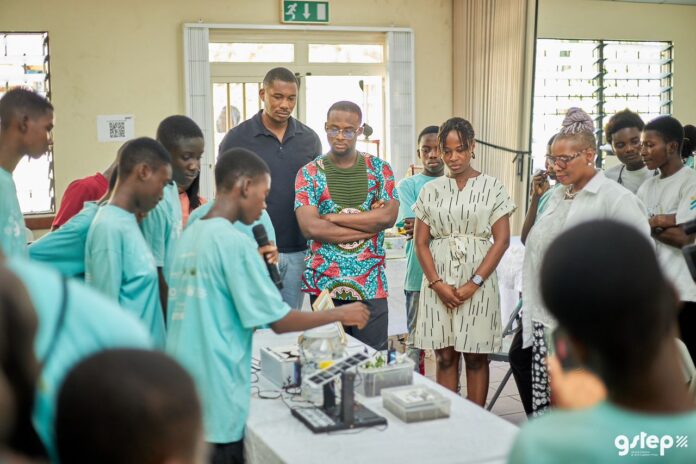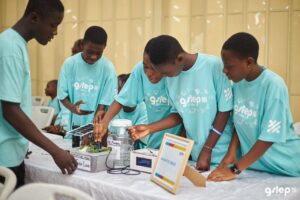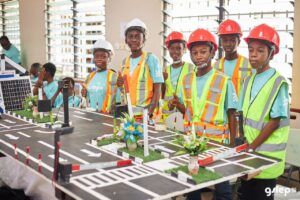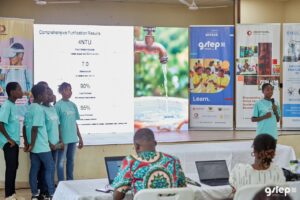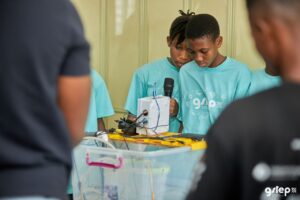The government is being urged to invest more into practical science and technology education as the Ghana Science and Tech Explorer Prize (GSTEP) challenge continues to impact thousands of young minds across the country.
The basic school competition held its judging and pitching event for twenty teams in the Ashanti region to display their innovations that seek to proffer solutions to societal challenges and pique their interest into science and engineering fields.
Founder of GSTEP, Constance Agyemang, emphasized that the country’s current education system heavily focuses on theory, leaving a gap in practical training.
She indicated that there is a need to invest in laboratories and tools to allow students to put their knowledge into action.
“Our Junior High School students are just thinking about what they can do in the world, and we want to just give them a way to see how STEM relates to real world situations,” she said.
Ms. Agyemang explained that many students, when given the chance, are capable of identifying problems and creating their own solutions without relying on others.
She believes that encouraging the use of local materials and Ghanaian innovation is essential to drive long-term development and boost confidence in local solutions.
This year’s GSTEP challenge has introduced a more practical approach, including the early distribution of technical set of things, the building of structures, and idea pitching.
These are designed to help students develop prototypes and sharpen their business, technical, and teamwork skills.
The judging and pitching event saw twenty teams of young innovators from different schools in the Ashanti region square up for the top positions ahead of the grand finale.
One of the stand-out projects this year came from the Smart Traffic Managers team.
Lordina, a member of the group, explained that their Smart Traffic Management System, which is solar-powered, was inspired by frequent knock downs.
She recounted the ordeal an old woman in Bechem, a town in the Ahafo Region, encountered when struggled to interpret the traffic lights.
Their innovation aims to make pedestrian crossings safer, especially in communities where road accidents are common.
She highlighted the experience and benefits from the program.
“The house STEM has helped us to learn some of the basics of STEM and also how to connect electronic devices,” she said.
Another innovation came from team Eco-Fuel Agenda, whose project tackles deforestation and the reduction of carbon emission.
Team member, Yaa Gyasiwaa Opoku shared that their eco-fuel, which is made from rice husks, burns at a lower temperature than charcoal and offers a more sustainable option.
“Our idea stands out from the existing solution by burning in a lower temperature and our prototype is also made from rice husks and the other existing ones are made from firewood that’s why we chose that,” she said.
A judge for this year’s event, Toyin Dania stressed the excitement among schools and praised how the competition encourages self-expression.
She pointed out that projects like a traffic light system designed to assist pedestrians should catch the attention of authorities.
“I wonder what the Ministry of Roads is doing because we need this. We need good roads and safety, and our children need to feel safe on the road and not be run over because someone’s not observing,” she said.
Ms. Dania added that such youth-led innovations reveal the creative thinking among students and should be supported.
“The Government should encourage students at the basic school level since such programs tell what exactly people are thinking and would want to use it to help the community,” she said.
She also called on parents, citizens, and individuals to contribute to encouraging the creativity of young Ghanaians.
The GSTEP program has impacted more than 30,000 students across Ghana, providing them with the tools, confidence, and experience to pursue STEM- driven solutions.
The 2025 GSTEP Exhibition & Awards Ceremony is scheduled to take place on the 16th and 17th of July 2025 at the National Theatre in Accra.
During the event, all 50 finalist teams from the Greater Accra, Ashanti, and Eastern Regions will showcase their innovative projects to key stakeholders in the education sector, as well as the general public

